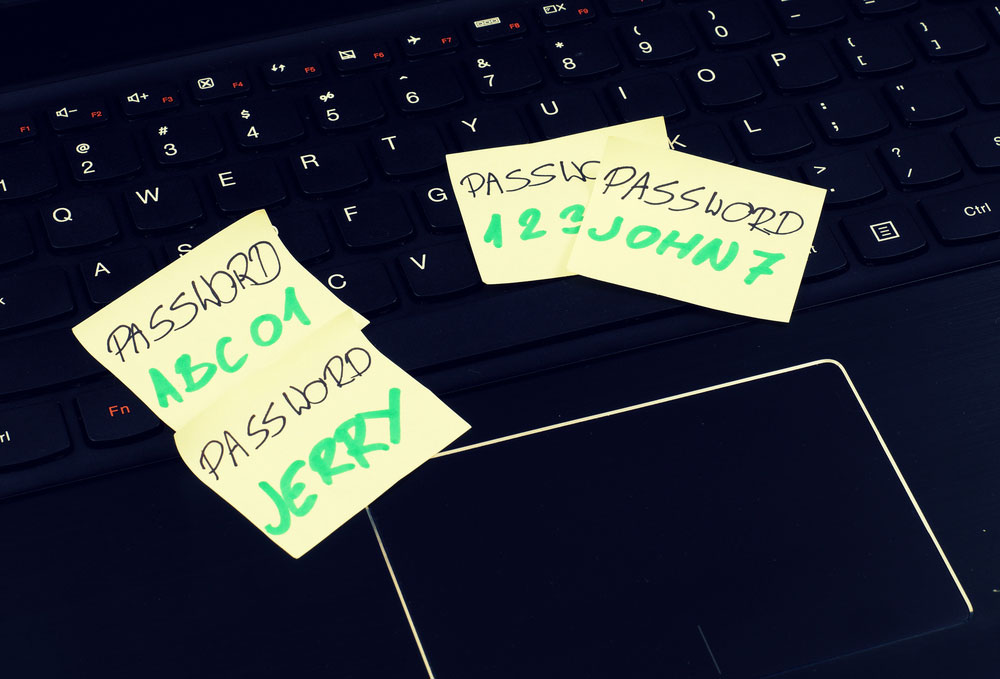These are the latest world's worst passwords — don't use any of them
Our old favorite '123456' still tops the list

Here at Tom’s Guide our expert editors are committed to bringing you the best news, reviews and guides to help you stay informed and ahead of the curve!
You are now subscribed
Your newsletter sign-up was successful
Want to add more newsletters?

Daily (Mon-Sun)
Tom's Guide Daily
Sign up to get the latest updates on all of your favorite content! From cutting-edge tech news and the hottest streaming buzz to unbeatable deals on the best products and in-depth reviews, we’ve got you covered.

Weekly on Thursday
Tom's AI Guide
Be AI savvy with your weekly newsletter summing up all the biggest AI news you need to know. Plus, analysis from our AI editor and tips on how to use the latest AI tools!

Weekly on Friday
Tom's iGuide
Unlock the vast world of Apple news straight to your inbox. With coverage on everything from exciting product launches to essential software updates, this is your go-to source for the latest updates on all the best Apple content.

Weekly on Monday
Tom's Streaming Guide
Our weekly newsletter is expertly crafted to immerse you in the world of streaming. Stay updated on the latest releases and our top recommendations across your favorite streaming platforms.
Join the club
Get full access to premium articles, exclusive features and a growing list of member rewards.
We have sad news: The world's most-often used password is still "123456."
This depressing statistic comes as a result of a study by Turkish researcher Ata Hakçıl, who analyzed more than 742 million passwords revealed in numerous data breaches over the past several years and posted his results on GitHub. Among those passwords, "123456" appears 5.3 million times, or in out of every 138 entries.
- The best password managers to keep your online accounts safe
- Look out, online gamers: Hackers want your passwords
- New: I ditched Android for iPhone SE for a month —pros and cons
Of the 742 million entries, there were only 169 million unique passwords, which gives you an idea of how frequently we use obvious passwords. The most common 1,000 passwords were 6.6% of the total, and less that 9% of the passwords were found only once.
There was a little good news: The average length of the passwords was 9.48 characters, which means that all the nagging about creating longer passwords is paying off.
By contrast, the median (if not mean) length in the famous RockYou data breach of 2009 was about 7 characters. (Hakçıl chose not to include the 32 million RockYou entries because they've been so widely studied.)
UPDATE: We played with the RockYou statistics in this report from Imperva and came up with an average RockYou password length of roughly 7.41 characters.
Same old song
But that's still far outweighed by the bad news. The RockYou database's most-used password is also "123456." In fact, of the top 20 old RockYou passwords, entered between 2005 and 2009, seven are also in Hakçıl's brand-new Top 20 list: 123456, 12345, 123456789, iloveyou, 1234567, 12345678 and abc123.
Get instant access to breaking news, the hottest reviews, great deals and helpful tips.
Two others came close but not quite, with "Password" and "Qwerty" appearing in the RockYou Top 20, but "password" and "qwerty" in Hakçıl's Top 20. (We're not sure why that occurred, but RockYou may have required the inclusion of upper-case letters at some point.)
Only 12% of the passwords Hakçıl examined contained "special" characters, such as punctuation marks, that are found on common QWERTY keyboards but are not letters or numbers: ? < , > & ^ and so on. Including such characters goes a long way to beefing up a password's strength against password crackers.
By contrast, nearly 29% of the passwords were compromised of letters only, and more than 26% of the total were lowercase only. More than 13% consisted of only digits.
In an indication of how people form passwords, more that 34% of passwords that mixed letters and numbers ended with the numbers — e.g. "qwerty123" — but only 4.5% started with the numbers.
Mystery pattern in the data
Hakçıl did find one surprising thing -- some 763,000 10-character passwords of gibberish that nevertheless followed a predictable pattern.
"They all start and end with uppercase characters," Hakçıl wrote. "None of them seem to have a keyboard pattern or meaningful word in them" and "they don't contain special characters."
Even though the passwords appeared to be machine-generated, several of them appeared to have been reused, possibly indicating a flaw in a password-generation algorithm.
"I have no idea what this uncovers and what it implies, but I'm suspecting a password manager out there is creating passwords with low entropy, causing repetitions over a lot of users," Hakçıl wrote. "All the ideas about this are welcome and appreciated."
Hakçıl started with about 1 billion pairs of credentials (passwords and usernames), but had to toss out more than 257 million pairs for being either unreadable or obviously test accounts.
How to create and manage passwords
To make sure to limit the extent of a data breach upon your account security, make sure that all of your passwords are long, strong and unique.
Length is currently the most important factor, as a 20-character password of random lowercase letters has less chance of being "cracked" than a 12-character password made up of lowercase and uppercase letters, digits and punctuation marks and other special characters.
But ideally, you'd want a long password of at least 15 characters made of absolute gibberish containing all four types of characters found on a common QWERTY computer keyboard.
To create and remember such passwords, and to make sure none of them is repeated, there's no better solution that to use one of the best password managers.
The 100 worst passwords of 2020
Here are the 100 most commonly passwords, according to Hakçıl's analysis. You shouldn't be using any of these for any of your accounts.
- 123456
- 123456789
- password
- qwerty
- 12345678
- 12345
- 123123
- 111111
- 1234
- 1234567890
- 1234567
- abc123
- 1q2w3e4r5t
- q1w2e3r4t5y6
- iloveyou
- 123
- 000000
- 123321
- 1q2w3e4r
- qwertyuiop
- 654321
- qwerty123
- 1qaz2wsx3edc
- password1
- 1qaz2wsx
- 666666
- dragon
- ashley
- princess
- 987654321
- 123qwe
- 159753
- monkey
- q1w2e3r4
- zxcvbnm
- 123123123
- asdfghjkl
- pokemon
- football
- killer
- 112233
- michael
- shadow
- 121212
- daniel
- asdasd
- qazwsx
- 1234qwer
- superman
- 123456a
- azerty
- qwe123
- master
- 7777777
- sunshine
- N0=Acc3ss
- 1q2w3e
- abcd1234
- 1234561
- computer
- f***you [censored -- the missing letters rhyme with "duck"]
- aaaaaa
- 555555
- asdfgh
- asd123
- baseball
- 0123456789
- charlie
- 123654
- qwer1234
- naruto
- a123456
- jessica
- soccer
- jordan
- liverpool
- thomas
- lol123
- michelle
- 123abc
- nicole
- 11111111
- starwars
- samsung
- 1111
- secret
- joshua
- 123456789a
- andrew
- 222222
- q1w2e3r4t5
- 147258369
- hunter
- Password
- qazwsxedc
- lovely
- 999999
- jennifer
- letmein
- tigger

Paul Wagenseil is a senior editor at Tom's Guide focused on security and privacy. He has also been a dishwasher, fry cook, long-haul driver, code monkey and video editor. He's been rooting around in the information-security space for more than 15 years at FoxNews.com, SecurityNewsDaily, TechNewsDaily and Tom's Guide, has presented talks at the ShmooCon, DerbyCon and BSides Las Vegas hacker conferences, shown up in random TV news spots and even moderated a panel discussion at the CEDIA home-technology conference. You can follow his rants on Twitter at @snd_wagenseil.
 Club Benefits
Club Benefits










